The timeless narrative of the brave prince/knight slaying the dragon to rescue the damsel in distress has been reimagined countless times, with Disney alone producing numerous adaptations. This fairy tale archetype seems ingrained in the hearts of generations of young girls—a comforting belief that a hero will always come to their rescue when in trouble. However, reality often diverges significantly from dreams.
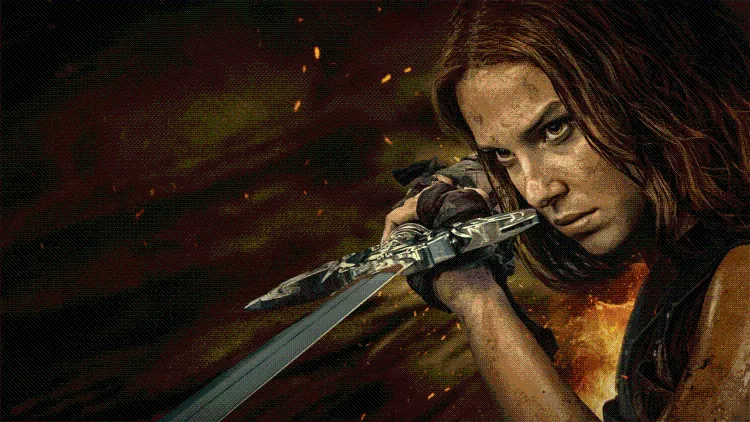
"Damsel" tells a story that shatters these illusions. Elodie, the eldest daughter of a minor noble, agrees to marry into a distant kingdom in exchange for the welfare of her people, hoping to become the princess of a prosperous new realm. Little did she know the cruel reality lurking behind the scenes far exceeded her imagination. The screenplay is penned by Dan Mazeau, known for "Fast X," with direction by Juan Carlos Fresnadillo, director of "28 Weeks Later."
The protagonist, Elodie, is portrayed by Eleven - Millie Bobby Brown from "Stranger Things." At the same time, Lady Bayford, Elodie's stepmother, is played by Angela Bassett from the Marvel Cinematic Universe. Robin Wright portrays Queen Isabelle of the new kingdom from the DC Universe.
Must Men rescue Women?
While "Damsel" boasts impeccable production design and visual effects, with evident investment in action sequences and animation, its plot, while not entirely lackluster, lacks profound depth. It revolves around a power struggle among four female characters—Elodie, her stepmother, the queen, and the mysterious dragon. The story is predictable from the trailer: the grand wedding is a sham, and Elodie is not the prince's bride but a sacrificial lamb. As she struggles to escape the dragon's lair to save her life, her stepmother also tries to alter her stepdaughter's fate.
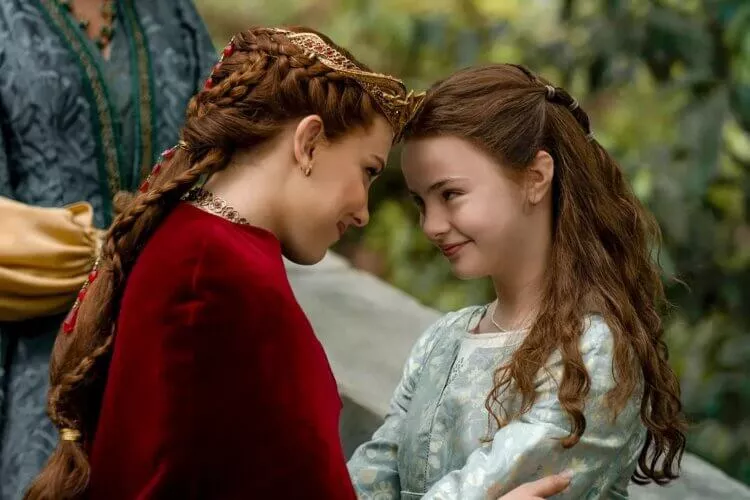
However, it's not to say that male characters are mere background props. Lord Bayford regrets his decision to betray his daughter and meets his demise in the dragon's lair, and Prince Henry at least delivers a few meaningful lines. Yet, the decisive power lies with the four female characters. This overturns the conventional trope of the damsel in distress relying on a male hero but doesn't necessarily align with an overtly feminist perspective.
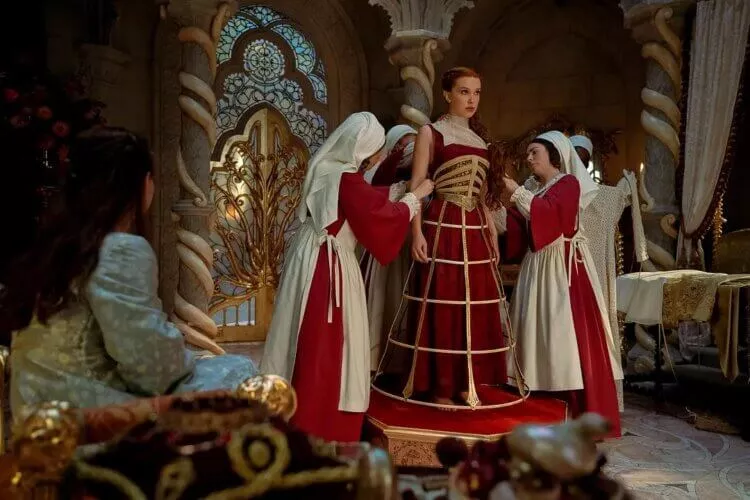
Debunking the Myth of "Saint George Killing the Dragon"
The most frequently referenced (or mimicked) classic tale of the damsel in distress in Western culture is "Saint George Killing the Dragon." Originating from the Saint George legend of the third century, this story tells of Saint George rescuing a princess sacrificed to a dragon (sometimes a Chimera) and subsequently slaying the dragon after the townspeople agree to convert to Christianity.
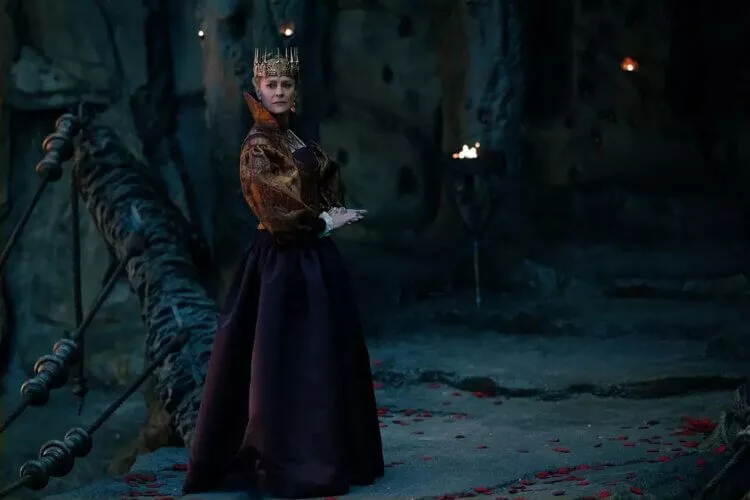
This tale became a popular subject for Renaissance decorative paintings and influenced numerous allegories and fairy tales in subsequent generations. Whether it's Snow White, Cinderella, or Sleeping Beauty, the villain persecuting or oppressing the princess/damsel can change with time and textual requirements, and the heroic image of the prince/knight can evolve with the times. However, one thing remains constant: the high-concept myth that "women always need a male savior."
"Damsel" successfully dismantles the male-dominated narrative established by "Saint George Killing the Dragon." Still, upon closer examination, the film's plot and character dynamics resemble a medieval mother-in-law battle. The evil stepmother desires a docile and obedient daughter-in-law who will obediently endure hardships and even sacrifice herself, while the daughter-in-law longs to break free from the constraints and live a carefree life. Meanwhile, there's a former daughter-in-law who suffered abuse years ago, joining forces with the new daughter-in-law to overthrow the evil mother-in-law's fortress.
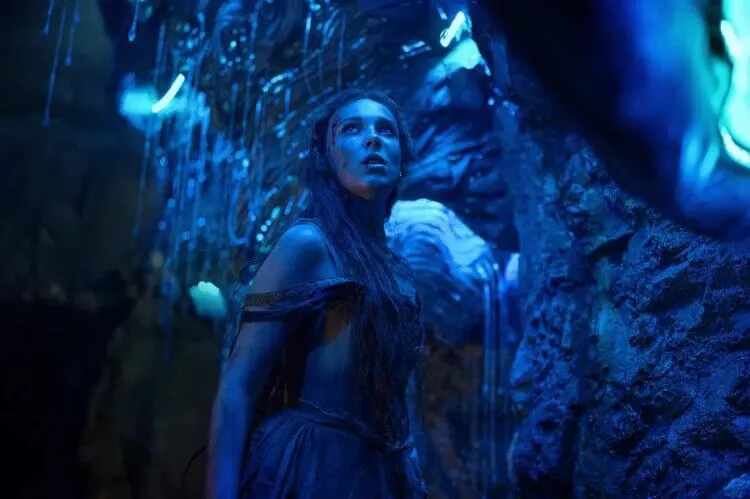
In the end, Elodie escapes the dragon's lair and joins forces with the mysterious dragon to overthrow the castle of the new kingdom, seizing control of the country's wealth and sailing away with the dragon. While this might seem like a perfect open-ended conclusion, the subsequent developments are unsettling. Elodie undoubtedly becomes the new dragon mother, armed with the experience of this rebellion. She may speak of running businesses with her daughter and the dragon in the future. Still, when faced with trade obstacles, she may resort to annihilating cities and countries, transforming from victim to perpetrator, with the distinction between zero and infinite occurrences.








Share your thoughts!
Be the first to start the conversation.